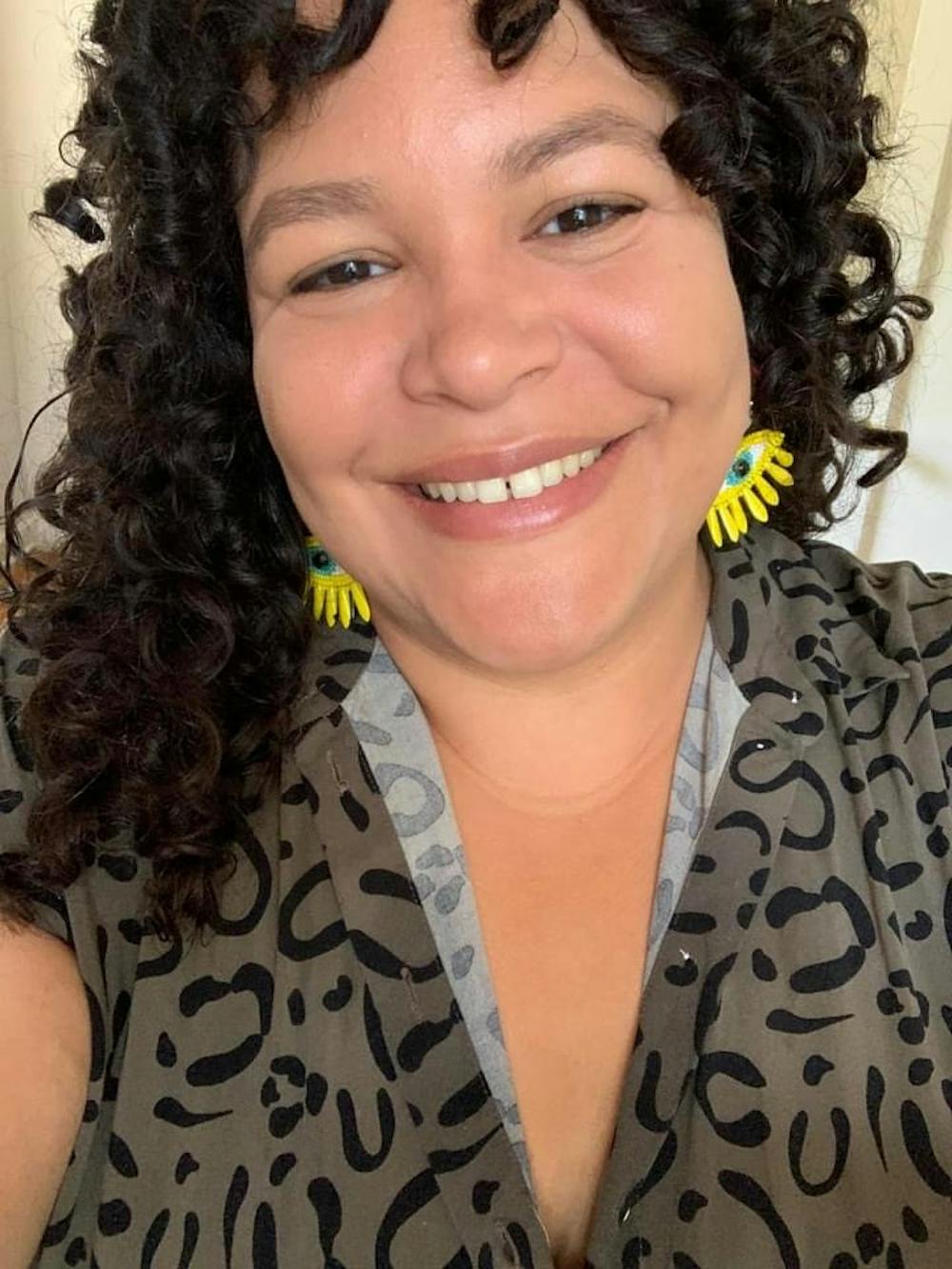Assistant Professor of Luso-Hispanic Studies Raquel Albarrán is remembered as a loving friend, passionate community leader and a revolutionary scholar.
Raquel passed away on Wednesday, Sept. 7, 2022, due to natural causes. At the time of her death, she was on a Ford Foundation Postdoctoral Fellowship as a Visiting Scholar at Rutgers Advanced Institute for Critical Caribbean Studies.
Raquel grew up in Puerto Rico. Her father Miguel Albarrán said he knew Raquel was different ever since she was a child. Unlike other kids who babbled words, Raquel’s first words were a full sentence. He remembered her saying, “papi se fue” — in English, “Daddy left.”
“Raquel read and wrote before going to kindergarten. I was a university teacher, and when I used to do work at home, she used to bring her little desk and sit by me and just imitate. She started writing her name, knowing the letters and communicating,” Miguel said. “She used to say that it's funny that what she does is what she’s been doing since she was a little kid, but now she gets paid for that.”
Miguel used the expression “when perfection is not enough” to describe Raquel as a student who wanted to excel in every aspect. He recalled that during Raquel’s junior high school graduation, Raquel was not only a graduating student, but she was also the master of the ceremony and sang in the choir.
Raquel attended the Universidad de Puerto Rico in San Juan, Puerto Rico where she majored in biochemistry and human nutrition. In 2004, she did an internship in Peru to study the breast feeding patterns of Andean women in Peru. In an interview she did with the University of Washington’s Spanish and Portuguese Studies Department while she was a professor there, Raquel recalled the awakening she had while conducting the research.
“Our study was overlooking the power relations involved in data collection, and the larger cultural context of the research,” Raquel said. “I was interested in the relation between material processes (typically the realm of the hard sciences) and culture, but I was not feeling like I could pursue this research from the narrow disciplinary tools that I had at the time.”
Finding her passions in literature and culture, Raquel completed her masters and doctorate in Hispanic studies from the University of Pennsylvania. Before joining Middlebury in 2018, Raquel also held positions at the University of Washington and Florida State University.
At Middlebury, Raquel taught all levels of language, literature and culture courses in the Department of Luso-Hispanic Studies. Kevin Mata ’22, a former student of Raquel’s, described her as a selfless teacher who recognized the voice of every student.
“She was really intentional at making sure that her opinion didn’t supersede our own,” Kevin said. “Each of our opinions, regardless of our academic understanding of the topic, was just as valid as her own.”
Kevin was in Raquel’s Colonial Objects class in spring 2022. He remembered first connecting with Raquel during a ten-minute break during her first class. Spanish singer-songwriter Rosalía’s album had just come out, and Raquel was talking about Reggaetón and how Rosalía’s new music could be interpreted as appropriative.
“She made such advanced topics seem like the simplest things, in a way that was so heartwarming,” Kevin said. “She made academics fun and relatable and important in the lives of queer and marginalized students.”
Through the course of the semester, Kevin met with Raquel regularly to complete his independent project, which later won the 2022 Samuel Guarnaccia ’30, MA ’36 Senior Prize. Kevin said Raquel stood at the forefront of academic studies in Spanish literature. More importantly, Raquel was aware that academic writing is often driven by traditional modes of evaluation, and encouraged Kevin to question those standards of normalcy.
“She wanted me to know that these standards of evaluation shouldn’t drive where I wanted to take this paper,” Kevin said. “She told me that my own lived experience, just as well as her own experience, were enough to fuel the directions of the paper itself and bring about academic brilliance in its own way.”
Raquel was a professor who inspired her students to reflect on how their own lives and identities can be shaped by academic literature. Kevin remembered the moment when Raquel shared with her class that she had been awarded a Ford Fellowship. To Kevin, Raquel was leading by example, showing her students that she was continuously pursuing her own studies, and if she could do it, then other students in the classroom who looked like her could do it too.
The compassion Raquel held for her students extended to her life outside the classroom. Associate Professor of Hispanic Visual Culture Enrique García said Raquel built an extended family with the community at Middlebury.
“She was like an aunt to everyone in the community, including the students and my kids. She would sometimes go to my kids’ basketball games to support them,” Enrique said. “She’s Puerto Rican, like me, so she functioned like an auntie to my kids at Middlebury.”
Raquel radiated with generosity and love for those around her.
Miguel recalled having an argument with Raquel while she was living in Philadelphia because she wanted to open her room to strangers as a transit house for youth traveling in the U.S. Enrique remembered Raquel’s perseverance when taking care of her mother with Alzheimers, while continuing her commitment to being a positive influence on BIPOC faculty and students at Middlebury.
Raquel converted one of her grandmother’s home cooked recipes into a poem that she included in a collection of poems. With her invitation, her grandmother became a co-publisher at 90 years old.
Raquel has left an imprint on Middlebury during her short four years here. According to Carlos Vélez-Blasini, dean of international programs and professor of psychology, Raquel was instrumental in the creation of the Middlebury School in Puerto Rico. She also helped design the website for the Luso-Hispanic studies department and decorate the department’s new building.
“There are a lot of simple things that are great things,” Miguel said. “And she did a lot of simple things.”




